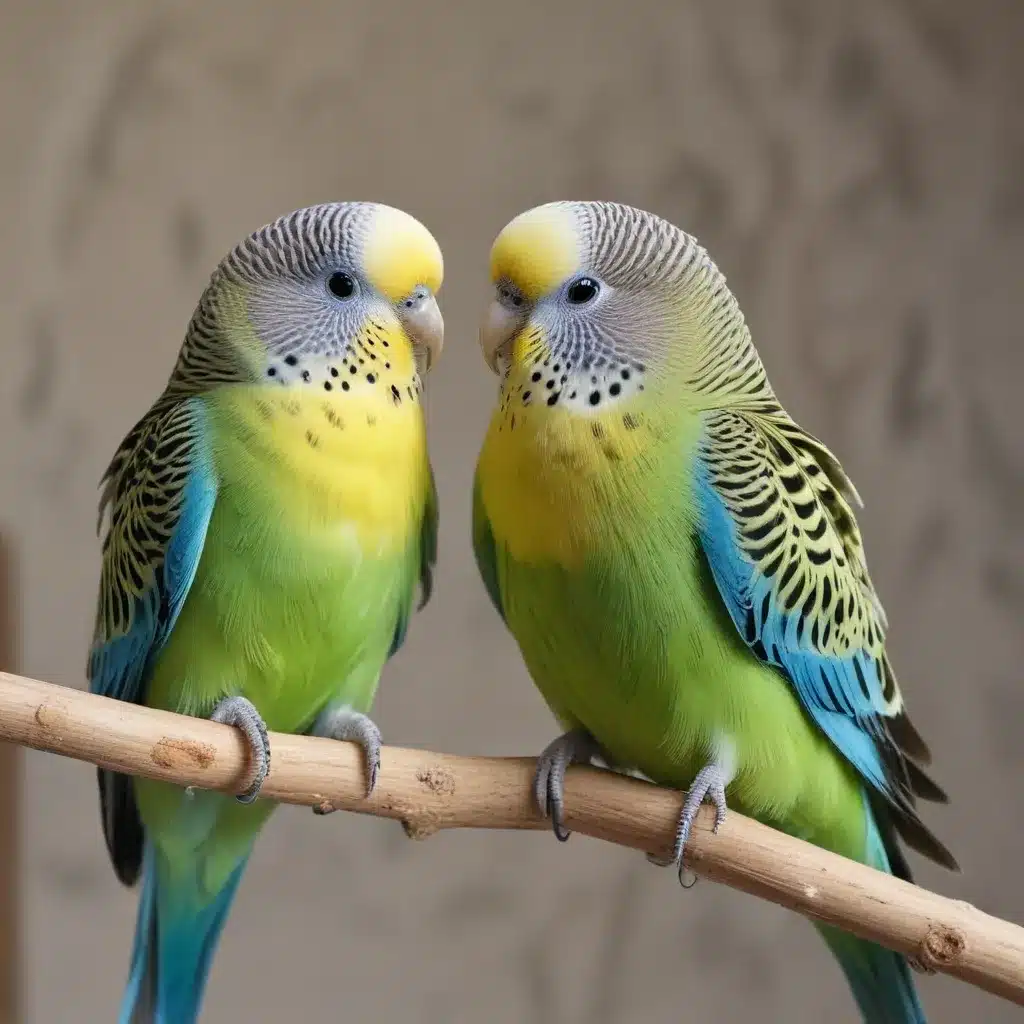
Budgie Basics
Budgie Characteristics
Budgies, also known as parakeets, are small, vibrant members of the parrot family that have captivated bird enthusiasts for generations. With their striking colors, engaging personalities, and endearing antics, these pint-sized companions have become one of the most popular avian pets worldwide. Budgies are known for their intelligence, curiosity, and social nature, making them well-suited for aviculturists seeking a feathered friend to bond with.
Budgie Behavior
In the wild, budgies thrive in large, dynamic flocks, where they engage in complex social interactions and rely on constant communication. This innate gregariousness extends to their behavior as companion birds, as they often form deep emotional connections with their human caretakers. Budgies are highly vocal, using a wide range of chirps, whistles, and contact calls to express their needs and desires. They are also incredibly playful, delighting their owners with acrobatic displays and innovative foraging behaviors.
Budgie Care
Providing a budgie with proper housing, nutrition, and enrichment is essential for cultivating a healthy, happy companion. A spacious cage equipped with varied perches, foraging toys, and opportunities for flight is crucial for physical and mental wellbeing. A balanced diet of high-quality pellets, fresh fruits and vegetables, and occasional seeds helps ensure budgies receive all the necessary nutrients. Regular veterinary checkups, proper grooming, and close monitoring of their environment are also key components of responsible budgie ownership.
Building Budgie Bonds
Budgie Socialization
Budgies are highly social creatures, and their capacity for forming strong bonds with humans is well-documented. From a young age, exposing budgies to positive interactions with their caretakers can lay the foundation for a trusting relationship. Gradual desensitization, gentle handling, and rewarding calm behavior with treats help build confidence and encourage the bird to engage with their human companion.
Budgie Training
Incorporating positive reinforcement-based training into a budgie’s routine can be a powerful tool for strengthening the human-avian bond. Teaching simple behaviors, such as stepping up onto a hand or perching on a shoulder, not only builds trust but also enhances the bird’s overall well-being by providing enrichment and increasing their sense of control in their environment. Additionally, training can facilitate essential husbandry tasks, making routine veterinary visits and grooming a more positive experience for both the budgie and their owner.
Budgie Enrichment
Providing a variety of engaging activities and novel stimuli is crucial for meeting a budgie’s physical and mental needs. Rotating toys, introducing new foraging opportunities, and encouraging natural behaviors like climbing, chewing, and flying can help prevent boredom and foster a strong bond between the bird and their caretaker. Shared playtime, where the owner actively interacts with the budgie, further strengthens the relationship and creates opportunities for positive reinforcement.
Avian Anatomy and Physiology
Budgie Sensory Systems
Understanding the unique sensory capabilities of budgies can help owners better cater to their companions’ needs and preferences. Budgies possess exceptional visual acuity, with the ability to see in the ultraviolet spectrum and detect subtle movements. Their keen sense of hearing allows them to perceive a wide range of vocalizations, which they use to communicate with flock mates and their human caretakers. Recognizing these sensory adaptations can inform how owners approach interacting with their budgies, ensuring a more positive and enriching experience.
Budgie Nutrition
Proper nutrition is a cornerstone of budgie health and longevity. A balanced diet consisting of high-quality pellets, a variety of fresh fruits and vegetables, and limited seeds provides the necessary vitamins, minerals, and energy for these active little birds. Caretakers must be vigilant in monitoring their budgie’s intake and avoiding potentially toxic foods to ensure their feathered friend remains vibrant and thriving.
Budgie Health
Maintaining a budgie’s overall wellbeing is essential for cultivating a strong human-avian bond. Regular veterinary check-ups, prompt attention to any signs of illness or injury, and proactive preventive care can help ensure budgies live long, healthy lives. Owners should familiarize themselves with common budgie health concerns, such as feather-plucking, respiratory issues, and digestive problems, and work closely with an avian veterinarian to address any concerns.
Budgie Communication
Budgie Vocalizations
Budgies are renowned for their diverse vocal repertoire, using a wide range of chirps, whistles, and contact calls to convey their emotional states and interact with their flock. Understanding the meaning behind these vocalizations can provide valuable insight into a budgie’s needs and preferences, allowing owners to respond appropriately and build a deeper connection with their feathered companion.
Budgie Body Language
In addition to their vocalizations, budgies rely heavily on subtle body language cues to communicate. Observing the positioning of their feathers, the orientation of their body, and the movement of their head and eyes can reveal a budgie’s comfort level, emotional state, and willingness to interact. Paying close attention to these nuanced behaviors can help owners anticipate their bird’s needs and respond accordingly, fostering a more harmonious relationship.
Budgie Social Interactions
Budgies are highly social creatures, and their interactions with both conspecifics and their human caretakers are complex and multifaceted. Observing how a budgie engages with its flock mates, whether in the wild or in a home environment, can provide valuable insights into their natural behavioral repertoire and preferred modes of communication. Integrating these social dynamics into one’s approach to bonding with a budgie can lead to more rewarding and fulfilling interactions.
By delving into the unique characteristics, behaviors, and communication styles of budgies, avian enthusiasts can cultivate deeply rewarding relationships with these captivating companion birds. Through positive reinforcement-based training, enrichment-filled environments, and a nuanced understanding of their physical and social needs, budgie owners can foster bonds that transcend the typical pet-owner dynamic, forging lifelong connections with their feathered friends. As with any relationship, building trust and mutual understanding takes time and patience, but the rewards of a strong human-budgie bond are truly priceless. To learn more about the world of budgies and other avian companions, be sure to visit Mika Birds Farm – a trusted resource for all things feathered and fabulous.


